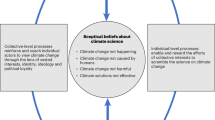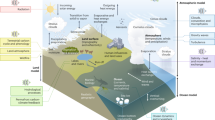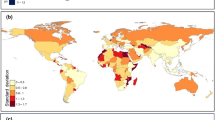Abstract
Climate scepticism remains an important barrier to public engagement with accurate climate information, because sceptics often actively avoid information that contains climate science facts. There still lacks a scalable, repeatable intervention to boost sceptics’ engagement with climate information. Here we show that generative artificial intelligence can enhance engagement with climate science among sceptical audiences by subtly modifying headlines to reduce anticipated disagreement, regret and negative emotions, without compromising factual integrity. Headlines of climate science articles modified by an open-source large language model led to more bookmarks and more upvotes, and these effects were strongest among the most sceptical participants. Participants who engaged with climate science as a result of this intervention showed a shift in beliefs towards alignment with the scientific consensus. These results show that generative artificial intelligence can alter the information diet sceptics consume and holds promise for advancing public understanding of science when responsibly deployed by well-intentioned actors.
This is a preview of subscription content, access via your institution
Access options
Access Nature and 54 other Nature Portfolio journals
Get Nature+, our best-value online-access subscription
$32.99 / 30 days
cancel any time
Subscribe to this journal
Receive 12 print issues and online access
$259.00 per year
only $21.58 per issue
Buy this article
- Purchase on SpringerLink
- Instant access to full article PDF
Prices may be subject to local taxes which are calculated during checkout



Similar content being viewed by others
Data availability
The data are available via GitHub at https://github.com/bencebago/climate_headlines_personalization/tree/main/data ref. 77.
Code availability
The code for the analysis and all materials is available via GitHub at https://github.com/bencebago/climate_headlines_personalization/tree/main/analysis.
References
Meng, Y., Broom, M. & Li, A. Impact of misinformation in the evolution of collective cooperation on networks. J. R. Soc. Interface 20, 20230295 (2023).
Kopp, C., Korb, K. B. & Mills, B. I. Information-theoretic models of deception: modelling cooperation and diffusion in populations exposed to ‘fake news’. PLoS ONE 13, e0207383 (2018).
Levin, S. A. & Weber, E. U. Polarization and the psychology of collectives. Perspect. Psychol. Sci. 19, 335–343 (2024).
Loomba, S., de Figueiredo, A., Piatek, S. J., de Graaf, K. & Larson, H. J. Measuring the impact of COVID-19 vaccine misinformation on vaccination intent in the UK and USA. Nat. Hum. Behav. 5, 337–348 (2021).
Abascal, M., Huang, T. J. & Tran, V. C. Intervening in anti-immigrant sentiments: the causal effects of factual information on attitudes toward immigration. Ann. Am. Acad. Pol. Soc. Sci. 697, 174–191 (2021).
Hornsey, M. J., Harris, E. A., Bain, P. G. & Fielding, K. S. Meta-analyses of the determinants and outcomes of belief in climate change. Nat. Clim. Change 6, 622–626 (2016).
Van der Linden, S., Leiserowitz, A. & Maibach, E. The gateway belief model: a large-scale replication. J. Environ. Psychol. 62, 49–58 (2019).
Lewandowsky, S. Climate change disinformation and how to combat it. Annu. Rev. Public Health 42, 1–21 (2021).
Van der Linden, S. L., Leiserowitz, A. A., Feinberg, G. D. & Maibach, E. W. The scientific consensus on climate change as a gateway belief: experimental evidence. PLoS ONE 10, e0118489 (2015).
Goldberg, M. H., van der Linden, S., Maibach, E. & Leiserowitz, A. Discussing global warming leads to greater acceptance of climate science. Proc. Natl Acad. Sci. USA 116, 14804–14805 (2019).
Većkalov, B. et al. A 27-country test of communicating the scientific consensus on climate change. Nat. Hum. Behav. 8, 1892–1905 (2024).
Bago, B., Rand, D. G. & Pennycook, G. Reasoning about climate change. Proc. Natl Acad. Sci. USA 2, pgad100 (2023).
Feldman, L. & Hart, P. S. Broadening exposure to climate change news? How framing and political orientation interact to influence selective exposure. J. Commun. 68, 503–524 (2018).
Peterson, E. & Iyengar, S. Partisan gaps in political information and information seeking behavior: motivated reasoning or cheerleading? Am. J. Political Sci. 65, 133–147.
Areni, C. S. Motivated reasoning and climate change: comparing news sources, politicization, intensification, and qualification in denier versus believer subreddit comments. Appl. Cogn. Psychol. 38, e4167 (2024).
Newman, T. P., Nisbet, E. C. & Nisbet, M. C. Climate change, cultural cognition, and media effects: worldviews drive news selectivity, biased processing, and polarized attitudes. Pub. Understand. Sci. 27, 985–1002 (2018).
Bolin, J. L. & Hamilton, L. C. The news you choose: news media preferences amplify views on climate change. Environ. Polit. 27, 455–476 (2018).
Wang, Y. & Jaidka, K. Confirmation bias in seeking climate information: employing relative search volume to predict partisan climate opinions. Soc. Sci. Comput. Rev. 42, 4–24 (2024).
Sweeny, K., Melnyk, D., Miller, W. & Shepperd, J. A. Information avoidance: who, what, when, and why. Rev. Gen. Psychol. 14, 340–353 (2010).
Bénabou, R. & Tirole, J. Identity, morals, and taboos: beliefs as assets. Q. J. Econ. 126, 805–855 (2011).
Golman, R., Hagmann, D. & Loewenstein, G. Information avoidance. J. Econ. Lit. 55, 96–135 (2017).
Andersen, K., Toff, B. & Ytre-Arne, B. Introduction: what we (don’t) know about news avoidance. Journal. Stud. 25, 1367–1384 (2024).
Skovsgaard, M. & Andersen, K. Conceptualizing news avoidance: towards a shared understanding of different causes and potential solutions. Journal. Stud. 21, 459–476 (2020).
Mangold, F., Schoch, D. & Stier, S. Ideological self-selection in online news exposure: evidence from europe and the us. Sci. Adv. 10, eadg9287 (2024).
Hickman, C. et al. Climate anxiety in children and young people and their beliefs about government responses to climate change: a global survey. Lancet Planet. Health 5, e863–e873 (2021).
Bayes, R. & Druckman, J. N. Motivated reasoning and climate change. Curr. Opin Behav. Sci. 42, 27–35 (2021).
Newman, N., Fletcher, R., Eddy, K., Robertson, C. T. & Nielsen, R. K. Reuters Institute Digital News Report 2023. Tech. Rep. (Reuters Institute for the Study of Journalism, 2023); https://reutersinstitute.politics.ox.ac.uk/digital-news-report/2023
Chinn, S., Hart, P. S. & Soroka, S. Politicization and polarization in climate change news content, 1985–2017. Science Communication 42, 112–129 (2020).
Malka, A., Krosnick, J. A. & Langer, G. The association of knowledge with concern about global warming: trusted information sources shape public thinking. Risk Anal. 29, 633–647 (2009).
Feldman, L., Myers, T. A., Hmielowski, J. D. & Leiserowitz, A. The mutual reinforcement of media selectivity and effects: testing the reinforcing spirals framework in the context of global warming. J. Commun. 64, 590–611 (2014).
Edenbrandt, A. K., Lagerkvist, C. J. & Nordström, J. Interested, indifferent or active information avoiders of carbon labels: cognitive dissonance and ascription of responsibility as motivating factors. Food Policy 101, 102036 (2021).
d’Adda, G., Gao, Y., Golman, R. & Tavoni, M. Strategic information avoidance, belief manipulation and the effectiveness of green nudges. Ecol. Econ. 222, 108191 (2024).
Sharot, T. & Sunstein, C. R. How people decide what they want to know. Nat. Hum. Behav. 4, 14–19 (2020).
Dorison, C. A., Minson, J. A. & Rogers, T. Selective exposure partly relies on faulty affective forecasts. Cognition 188, 98–107 (2019).
Newman, N., Fletcher, R., Schulz, A., Simge, A. & Nielsen, R. K. Reuters Institute Digital News Report 2020. Tech. Rep. (Reuters Institute for the Study of Journalism, 2020); https://reutersinstitute.politics.ox.ac.uk/sites/default/files/2020-06/DNR_2020_FINAL.pdf
Newman, N., Fletcher, R., Eddy, K., Robertson, C. T. & Nielsen, R. K. Reuters Institute Digital News Report 2022. Tech. Rep. (Reuters Institute for the Study of Journalism, 2022); https://reutersinstitute.politics.ox.ac.uk/digital-news-report/2022
González-Bailón, S. et al. Asymmetric ideological segregation in exposure to political news on facebook. Science 381, 392–398 (2023).
Iyengar, S. & Hahn, K. S. Red media, blue media: evidence of ideological selectivity in media use. J. Commun. 59, 19–39 (2009).
Petersen, A. M., Vincent, E. M. & Westerling, A. L. Discrepancy in scientific authority and media visibility of climate change scientists and contrarians. Nat. Commun. 10, 3502 (2019).
Koehler, D. J. Can journalistic ‘false balance’ distort public perception of consensus in expert opinion? J. Exp. Psychol. Appl. 22, 24 (2016).
Pennycook, G., McPhetres, J., Zhang, Y., Lu, J. G. & Rand, D. G. Fighting COVID-19 misinformation on social media: experimental evidence for a scalable accuracy-nudge intervention. Psychol. Sci. 31, 770–780 (2020).
Pennycook, G. et al. Shifting attention to accuracy can reduce misinformation online. Nature 592, 590–595 (2021).
Frimer, J. A., Skitka, L. J. & Motyl, M. Liberals and conservatives are similarly motivated to avoid exposure to one another’s opinions. J. Exper. Soc. Psychol. 72, 1–12 (2017).
Nyhan, B. et al. Like-minded sources on facebook are prevalent but not polarizing. Nature 620, 137–144 (2023).
Robertson, R. E. et al. Users choose to engage with more partisan news than they are exposed to on Google search. Nature 618, 342–348 (2023).
Janét, K., Richards, O. & Landrum, A. R. Headline format influences evaluation of, but not engagement with, environmental news. Journal. Pract. 16, 35–55 (2022).
Feldman, L. & Hart, P. S. Upping the ante? The effects of ‘emergency’ and ‘crisis’ framing in climate change news. Clim. Change 169, 10 (2021).
Chapman, D. A., Lickel, B. & Markowitz, E. M. Reassessing emotion in climate change communication. Nat. Clim. Change 7, 850–852 (2017).
Robertson, C. E. et al. Negativity drives online news consumption. Nat. Hum. Behav. 7, 812–822 (2023).
Zhang, M. et al. Negative news headlines are more attractive: negativity bias in online news reading and sharing. Curr. Psychol. 43, 30156–30169 (2024).
Vlasceanu, M. et al. Addressing climate change with behavioral science: a global intervention tournament in 63 countries. Sci. Adv. 10, eadj5778 (2024).
Maertens, R., Anseel, F. & van der Linden, S. Combatting climate change misinformation: evidence for longevity of inoculation and consensus messaging effects. J. Environ. Psychol. 70, 101455 (2020).
Nyhan, B., Porter, E. & Wood, T. J. Time and skeptical opinion content erode the effects of science coverage on climate beliefs and attitudes. Proc. Natl Acad. Sci. USA 119, e2122069119 (2022).
Dubey, A. et al. The Llama3 herd of models. Preprint at https://doi.org/10.48550/arXiv.2407.21783 (2024).
Howe, P. D., Mildenberger, M., Marlon, J. R. & Leiserowitz, A. Geographic variation in opinions on climate change at state and local scales in the usa. Nat. Clim. Change 5, 596–603 (2015).
Marlon, J. R. et al. Change in us state-level public opinion about climate change: 2008–2020. Environ. Res. Lett. 17, 124046 (2022).
Capraro, V. et al. The impact of generative artificial intelligence on socioeconomic inequalities and policy making. PNAS Nexus 3, pgae191 (2024).
Spitale, G., Biller-Andorno, N. & Germani, F. AI model GPT-3 (dis)informs us better than humans. Sci. Adv. 9, eadh1850 (2023).
Kidd, C. & Birhane, A. How AI can distort human beliefs. Science 380, 1222–1223 (2023).
Shin, S. Y. & Lee, J. The effect of deepfake video on news credibility and corrective influence of cost-based knowledge about deepfakes. Digit. Journal. 10, 412–432 (2022).
Simchon, A., Edwards, M. & Lewandowsky, S. The persuasive effects of political microtargeting in the age of generative artificial intelligence. Proc. Natl Acad. Sci. USA 3, 035 (2024).
Augenstein, I. et al. Factuality challenges in the era of large language models and opportunities for fact-checking. Nat. Mach. Intell. 6, 852–863 (2024).
Costello, T. H., Pennycook, G. & Rand, D. G. Durably reducing conspiracy beliefs through dialogues with AI. Science 385, eadq1814 (2024).
Bago, B. & Bonnefon, J.-F. Generative AI as a tool for truth. Science 385, 1164–1165 (2024).
Tessler, M. H. et al. AI can help humans find common ground in democratic deliberation. Science 386, eadq2852 (2024).
Dörr, K. N. Mapping the field of algorithmic journalism. Digit. Journal. 4, 700–722 (2016).
Diakopoulos, N. Automating the News: How Algorithms Are Rewriting the Media (Harvard Univ. Press, 2019).
Cools, H. & Diakopoulos, N. Uses of generative AI in the newsroom: mapping journalists’ perceptions of perils and possibilities. Journal. Pract. 1–19 (2024).
Guenther, L., Kunert, J. & Goodwin, B. ‘Away from this duty of chronicler and towards the unicorn’: how German science journalists assess their future with (generative) artificial intelligence. J. Sci. Commun. 24, A06 (2025).
Opdahl, A. L. et al. Trustworthy journalism through AI. Data Knowl. Eng. 146, 102182 (2023).
Nishal, S. & Diakopoulos, N. Envisioning the applications and implications of generative AI for news media. Preprint at https://doi.org/10.48550/arXiv.2402.18835 (2024).
Nishal, S., Sinchai, J. & Diakopoulos, N. Understanding practices around computational news discovery tools in the domain of science journalism. Proc. ACM Hum. Comput. Interact. 8, 1–36 (2024).
Ren, J., Zhao, Y., Vu, T., Liu, P. J. & Lakshminarayanan, B. In Proc. Machine Learning Research 49–64 (PMLR, 2023).
Kadavath, S. et al. Language models (mostly) know what they know. Preprint at https://doi.org/10.48550/arXiv.2207.05221 (2022).
Gomila, R. Logistic or linear? estimating causal effects of experimental treatments on binary outcomes using regression analysis. J. Exp. Psychol. Gen. 150, 700 (2021).
News personalization. AsPredicted https://aspredicted.org/wfvn-c2tg.pdf (2025).
Bago, B., Muller, P., Bonnefon, J.-F. Dataset and analysis for using generative AI to increase skeptics’ engagement with climate science. Zenodo https://doi.org/10.5281/zenodo.16755109 (2025).
Acknowledgements
J.F.B. acknowledges support from grant nos. ANR-23-IACL-0002, ANR-17-EURE-0010 and ANR-22-CE26-0014-01 and the research foundation TSE-Partnership. We gratefully acknowledge the help of Iyad Rahwan at the Center of Humans and Machines, Max Planck Institute for Human Development, for obtaining funding for data collection.
Author information
Authors and Affiliations
Contributions
The study was conceptualized by B.B., J.F.B. and P.M., who also developed the methodology and conducted the investigation together. B.B. was responsible for curating the data, conducting the formal analysis and developing the experimental software. J.F.B. secured the funding for this research and created the visualizations. The original draft of the manuscript was written by B.B. and J.F.B., while all three authors participated in reviewing and editing the final manuscript.
Corresponding author
Ethics declarations
Competing interests
The authors declare no competing interests.
Peer review
Peer review information
Nature Climate Change thanks Carmen Atkins, Mike Schäfer and the other, anonymous, reviewer(s) for their contribution to the peer review of this work.
Additional information
Publisher’s note Springer Nature remains neutral with regard to jurisdictional claims in published maps and institutional affiliations.
Supplementary information
Supplementary Information
Supplementary Figs. 1 and 2, Tables 1–59, analyses and materials.
Rights and permissions
Springer Nature or its licensor (e.g. a society or other partner) holds exclusive rights to this article under a publishing agreement with the author(s) or other rightsholder(s); author self-archiving of the accepted manuscript version of this article is solely governed by the terms of such publishing agreement and applicable law.
About this article
Cite this article
Bago, B., Muller, P. & Bonnefon, JF. Using generative AI to increase sceptics’ engagement with climate science. Nat. Clim. Chang. (2025). https://doi.org/10.1038/s41558-025-02424-9
Received:
Accepted:
Published:
DOI: https://doi.org/10.1038/s41558-025-02424-9



